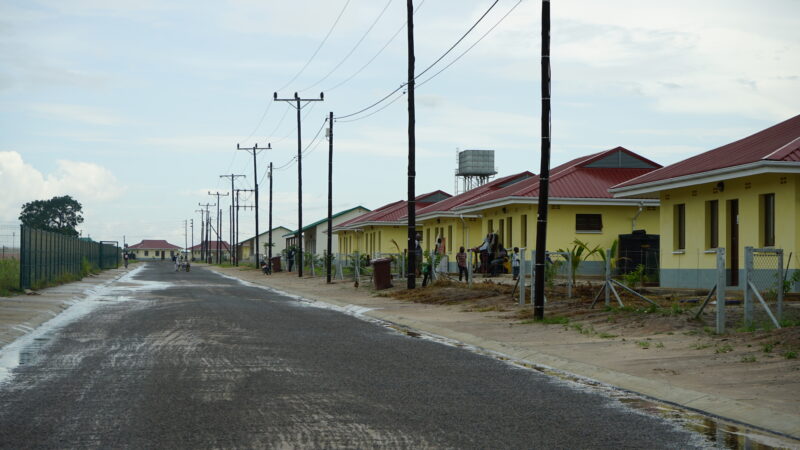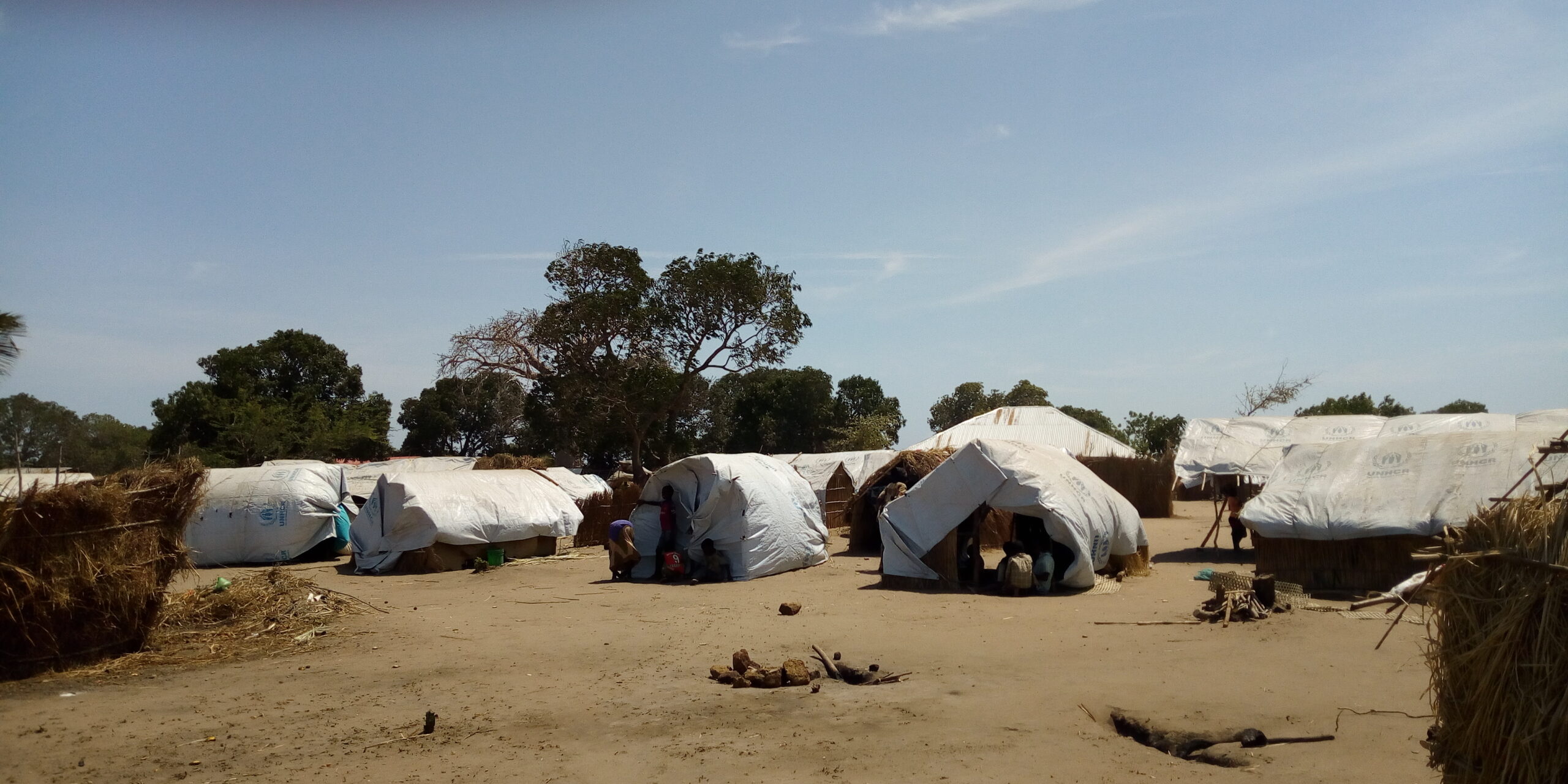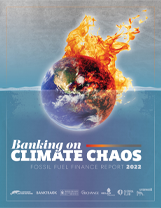This is a case study to accompany Banking on Climate Chaos: Fossil Fuel Finance Report 2022, produced in collaboration with Justiça Ambiental (JA!)/Friends of the Earth Mozambique, and BankTrack.
In 2010, a vast quantity of gas was discovered off the coast of northern Mozambique, in the Cabo Delgado region leading to an influx of large international corporations. The LNG industry in Cabo Delgado is currently made up of three major offshore and partly onshore projects to extract and liquefy gas for export: Rovuma LNG, led by Eni and ExxonMobil; Mozambique LNG, led by TotalEnergies; and Coral South floating LNG (FLNG), led by Eni. After a deadly attack by insurgents on the town of Palma in March 2021, TotalEnergies declared force majeure and put the Mozambique LNG project on hold. The final investment decision for the Rovuma LNG project has also been delayed because of the violent situation in Mozambique. The offshore Coral South FLNG vessel started operating in June 2022.
Despite the delay in construction of two of the projects, local communities are already experiencing a range of devastating impacts. In order to make way for the onshore LNG infrastructure, the Afungi LNG Park built by Total, over 550 families were displaced and relocated to a new town with no access to fishing grounds or land, resulting in loss of livelihoods. On top of this already dire situation, the gas industry has been central to a violent conflict. Local communities have been terrorized by insurgents who, partly fueled by a sense of resentment and outrage after years of neglect, and for not benefiting from the gas industry, deliberately kill civilians, loot their homes and burn villages. The insurgent activity has led to an influx of the military and police who also violently mistreat the civilian population and commit sexual violence against women and girls. Almost one million people have become internal refugees, and many people displaced by the project are now living in refugee centres. The climate impact will be major and the surrounding environment and ecosystems will be irreversibly destroyed.

Photo credit: Justiça Ambiental JA!/Friends of the Earth Mozambique
This escalating situation did not stop financial institutions from providing finance to the Mozambique LNG and Coral South FLNG projects. The banks that provided finance to these projects are, among others, Bank of China, BNP Paribas, Crédit Agricole, HSBC, ICBC, Intesa Sanpaolo, JPMorgan Chase, Mizuho Financial, MUFG, Natixis, SMBC, Société Générale, Standard Chartered, and UniCredit. The Rovuma LNG project is yet to reach financial close but it was reported that negotiations around project finance are expected to restart soon.
Learn more at stopmozgas.org
Banking on Climate Chaos 2022
The Banking on Climate Chaos report assesses big banks' financing for fossil fuels. These case studies highlight how this financing harms local communities, who are fighting back.










